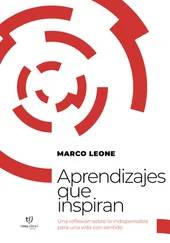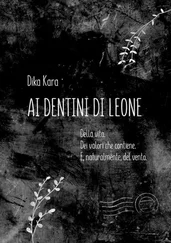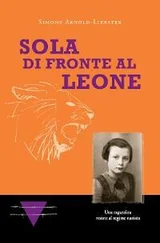At the beginning of summer, sitting again behind the big black desk, the doctor said to his father: it wasn’t leukemia. We don’t know what it was. The main thing is that your son is healthy now . His father ran out of the doctor’s office as if he had lost his head, as happy as a man whom they had told nothing else bad would ever happen to him in life. Nešo played soccer again.
Twenty-five years later, on Sunday, March 30, 1992, he invited a couple of friends and their wives over for fish and hot-pepper stew. Outside the war was about to fire up, inside the smell of fish, hot peppers, and tomato filled the air. No one wanted silence that day; let’s just talk about everything, except the war; we’ll forget about that, pretend it’s not here, like patients with a sudden interest in astronomy and linguistics, in everything they ever overlooked in life, now beautiful because it doesn’t remind them of their illness. The men laughed, the women planned their summer vacations, nonstop they spoke the names of days and months to come as if doing so would obliterate the war, that the tanks would cease to exist the second their steel ears heard the women’s voices, imposing and insistent, giving the order that August is for going to the seaside. Their stories annoyed Nešo, as he was the only one with no need of them. The war hadn’t registered in his head or heart; he was going steady with Magda, and this was all that held his interest and was the only reason he had invited guests over for lunch. He was just biding his time to cut loose. I killed a carp this morning , he said , it was no easy thing, I had to really stick it to him. Thank Christ pike and perch are always dead . The women fell silent and looked down at their plates. They took Nešo’s story about dead fish as an insult, as if he were saying to them: Yeah, you’re scared of the war, you should be ashamed, you don’t want to admit to yourselves that maybe you’ll never go to the seaside again, that maybe tomorrow your men will be holding machine guns in some ditch somewhere, pissing their drawers out of blind fear. They didn’t like Nešo, and that’s why they hadn’t worked out that the war hadn’t yet reached him, and they didn’t like him because Nešo loved playing the he-man, the kind who didn’t wash the dishes and didn’t iron his shirts because these kinds of chores were invented solely for husbands to humiliate their wives. Magda couldn’t care less; she smiled and calmly ate her food. He couldn’t stand that; it was for her that he was playing the he-man. Though they’d been married for years, Magda loved him as much as he did her, and admired him to an extent that would have made any husband happy. But Nešo wouldn’t quit, whenever someone came around, or as soon as he met someone at the bar, he couldn’t overcome this obsessive need to start talking the kind of shit that would make the stomach of any woman within earshot churn; any woman except Magda. She was either completely indifferent or accepted what he said as something definitive, which one needn’t pay any mind, much less fight about. Nešo’s were just words without substance, and it had never crossed his mind to try and put them into practice.
My wife always cleaned my soccer cleats after a game, she’d clean them and I’d lie down for a snooze. That’s the way things should be . He peered over at Magda, happily slurping his stew, flushed from the hot peppers and a kind of internal warmth that washed over him every time Magda sent apologetic glances to the women at the table. Magda didn’t give a thought to revealing that she’d never even laid eyes on those damn cleats, because then she’d ruin their game, and the game was more important to her than Nešo’s friends and their wives, who were as wild as two lynxes, kicking their husbands under the table. At the door, one of them, Nataša, said we’re never coming here again! Her husband bit his tongue; showing your anger like this was bad form. Nešo was his friend, and besides, he had a different take on the story about the cleats. It’s just what people are like: They court their lovers in all kinds of ways, and Nešo courted his with chauvinistic he-man stories.
But Nataša was right about one thing: They never came over to the apartment again because soon the apartment was no more. It went up in flames in one of the first bombardments of the city. Friendships got caught in the flames too, the remnants rare late-night telephone conversations, unreliable snippets of news traversing seas and oceans, news that contained but one verifiable fact: Everyone who had eaten fish and hot-pepper stew at Nešo’s that last Sunday before the war was still alive. Once they had lived within a forty-five-minute tram ride of each other, but today, even the fastest supersonic jet couldn’t round them up in that time.
Nešo lived with Magda in Toronto. He worked for an Italian in a little place that made spaghetti and fanatically tried to make new friends. He wanted people whom he could show himself and Magda off to, for someone in the big wide world to notice and say, look, those two are together; he wanted their love recorded the way it was in some of those burned books in their abandoned city. If you’ve already lost your life, at least you don’t have to lose your love, he thought, huddling down under the duvet, gripping Magda’s ankles with his feet, and speaking words that he later claimed he couldn’t remember because as Nešo would have it, you only uttered true words of love in your sleep. One Sunday he invited three work colleagues and their wives over for fish and hot-pepper stew. They were taken aback by the invitation but accepted it all the same. Having lunch at someone else’s place seemed a good way to save some money, and they had the feeling Nešo was inviting them to a kind of exotic ritual from some distant land, a ritual one really had to experience for oneself, like going off on a package tour somewhere.
A pack of deep-frozen fillets didn’t exactly amount to fish and hot-pepper stew, but Nešo didn’t care. He tried the steaming broth, huffing and puffing, slurping up his noodles, oblivious to Magda clinking her spoon on the edge of her plate in admonishment. She frowned, her heart pounding like crazy; God, just as long as he doesn’t start, just as long as he doesn’t speak, she thought. The women were eating quietly and smiling broadly, the men chatting away, Nešo lying in wait for his moment. Magda said Nešo!. . What? He looked up, she shook her head, don’t!. . What don’t?. . Don’t, please. . What?. . Don’t, just be quiet . The others fell silent; they didn’t understand the language but sensed it didn’t bode well.
Nešo put his spoon down, wiped his face and hands, and not taking his eyes off Magda for a second started with the story about his soccer cleats. Completely still, Magda returned his gaze, not paying the guests any mind. They ate, never looking up from their plates. The women raised their eyebrows pointedly, certain they would never be coming back here.
One of us has to go , said Magda. Why?. . Because this life isn’t the same as the one where you could roll out your soccer-cleats story. . Why isn’t it the same?. . If you don’t know that yourself, I’m not telling you. I want you to go, or else I’ll go. . Where would you go?. . Nešo, I want you to go, and I want you to go right now. . Where would I go?. . I don’t know, you’re the he-man aren’t you?
She shouldn’t have said that; he went straight to their room, took a suitcase from the wardrobe, and half an hour later slammed the door behind him without saying goodbye. He didn’t think for a second where he was going, or even where he could go in a city in which he had no family, where friendships developed so slowly that there was no hope of a saving grace, of a bed even for just the night. He walked for a time, and then rested his suitcase on the sidewalk and sat down, making like he was waiting for someone. He was angry and hurt; he didn’t know what had just happened or where the exit was that might get him out of this story. He felt so awfully betrayed that his joints were going to jump out of their sockets, every bone racing in its own direction. Once he had been afraid of catching Magda with another man or that one day he would come home to a letter on the kitchen table, but those fears paled in significance compared to what had actually happened. Instead of just taking herself from him, Magda had taken everything he had left in his life. The how and why didn’t matter, nor the where and when; to him it seemed she had taken everything except the suitcase on which he had parked his rear. There was one thing he was sure of: He would never go back home, he would never knock on Magda’s door, and he would never see her again. Maybe Nešo would change his mind by the morning, but how and where to live until the morning? He thought about the friends he’d cheated when he didn’t die of leukemia: Sitting here on the suitcase was the price of that distant betrayal.
Читать дальше












